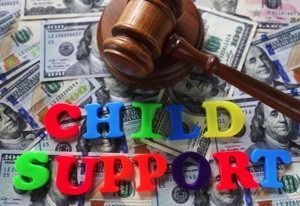
Rhode Island family law attorney David Slepkow published the articles below recently to provide valuable information concerning Rhode Island child support issues handled in Family Court. This includes establishing child-support payments, determining dependency exemptions and terminating financial support when the child reaches legal age.
Establishing, Modifying, Enforcing, Terminating & Contempt of Court
This article outlines the formula and guidelines used in the majority of RI child-support cases in Rhode Island. This includes guidelines to determine the parent’s assets, income shares model and adjusted gross income to calculate the level of support each parent provides to the child. The reader provides a theoretical example of how a family court judge might gauge child support amounts based on the income of both parents.
Who Is entitled to claim minor children as federal tax dependency exemptions
This article details important information on deciding if a parent is entitled to claim their minor child on their federal taxes as a dependency exemption. Readers are also informed of the rules and regulations of the IRS (federal government Internal Revenue Service) concerning dependency exemptions. The RI child custody attorney outlines how dependency exemptions are handled when there is a final judgment, decision pending or property settlement agreement between the child’s parents.
Rhode Island Child Support is not automatically terminated when the child Reaches legal age
While many parents assume their Rhode Island child support payments will be automatically terminated when their child reaches their eighteenth year, that is not the case. The reader learns that in nearly all cases, the parent might need to file a motion in Family Court to terminate the payments.
Child Support Contempt in Rhode Island by a Family and Divorce Law Attorney
This article discusses RI child support Contempt in Rhode Island in detail including the differences between a finding of technical or willlful contempt. Any person owed Rhode Island child support ( the parent with physical custody of the minor child or children) or who owes child support should carefully read this article. This article discusses in details under what circumstances a person will be sent to jail to compel compliance with child support orders. This article also explains other tools used by Rhode Island judges to compel payment of child support orders.
Private school
Every parent wants the best for their child, but can one parent force the other parent to pay for their private school or college education? This article provides answers to that question and how Rhode Island Family Court judges rule to ensure the best interest of the child is being served.
Calculate RI Child Support : What Is the Minimal Amount of child support?
Often times, the parent paying or receiving child support from the other parent wants to understand how the court system determines the amount of support provided to the child. This article details the minimum Rhode Island child support guideline amount and what the court requires to determine the assets of all parties involved. The guideline makes use of the income shares model and discretionary deductions to help decide how much is actually paid toward the child’s support.
Filing a Motion to Modify Child Support in Rhode Island
If circumstances have changed the parent’s ability to make child support payments, the amount is not automatically modified in Rhode Island Family Court. This article clarifies what constitutes a substantial change in the parent’s circumstances under Rhode Island family laws. The reader learns whether or not the amount of RI child support is adjusted retroactively and how much of a percentage of change is required before motion to modify can be filed.
RI Child Support Law FAQs: Daycare, Modification, Overtime, Contempt and Termination
There are numerous factors that might or might not affect child-support payments in Rhode Island based on the non-possessory parent’s changes in income or the evolving needs of the child. This article provides valuable content on how judges look at varying factors to determine, modify or clarify the amount of child support payments provided every month. Readers learn which party has to pay for the child’s daycare, private schooling and college education. The article also provides a theoretical example of how the judge would use existing guidelines to reach legal conclusions.
